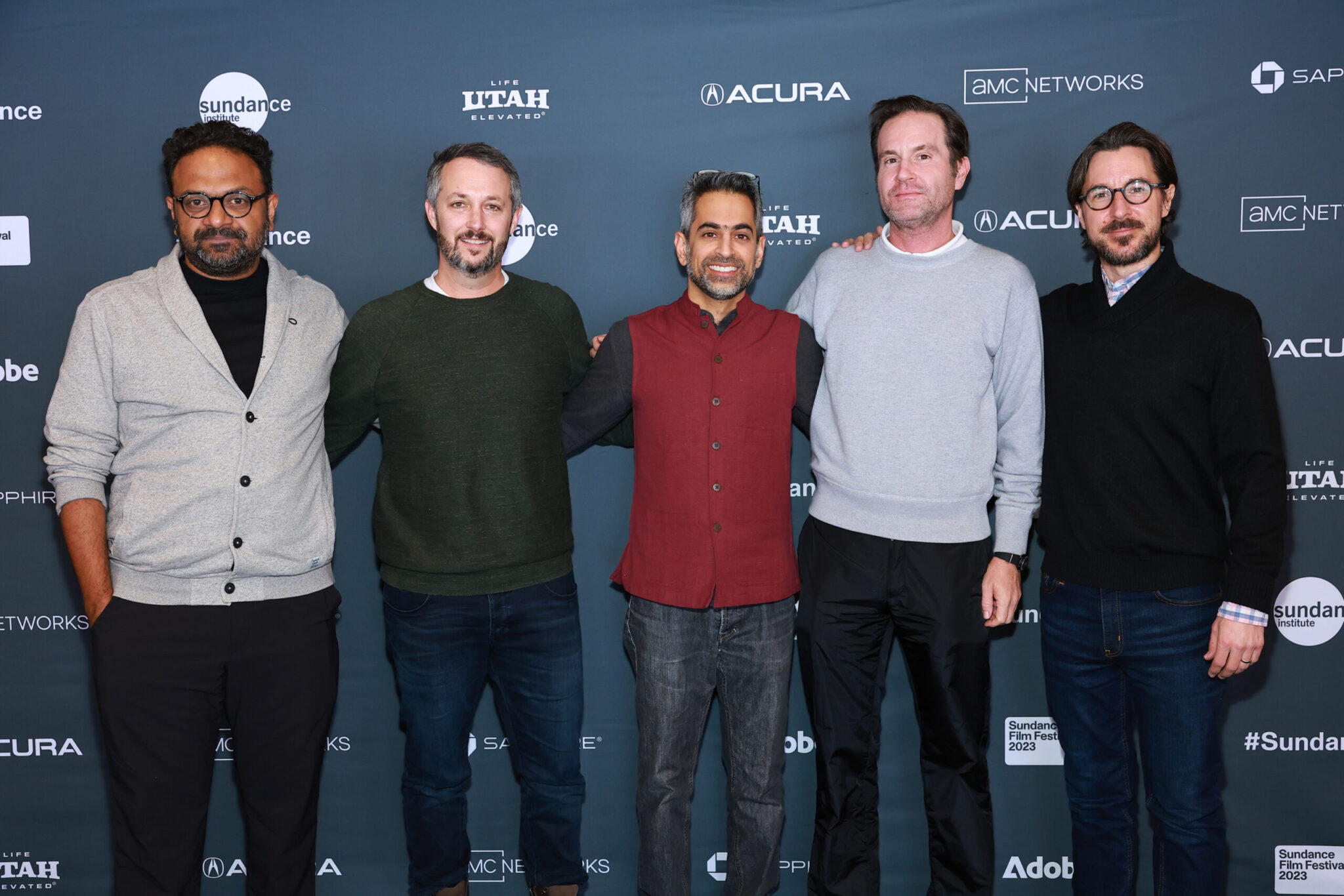(L-R) Alan McAlex, Sean McKittrick, Richie Mehta, Edward H. Hamm Jr. and Ray Mansfield attend the 2023 Sundance Film Festival “Poacher” Premiere at Prospector Square Theatre in Park City, Utah. (Photo by Arturo Holmes/Getty Images)
By Stepanie Ornelas
Back in 2016, when director Richie Mehta was in the early production stages of his film India in a Day, he was given a lot of interesting material to make the project. The film consisted of footage shot over the course of one day by millions of people in India. It was meant to create a portrait of one country as seen from the varied perspectives of its citizens.
But one clip really stood out to him and left him inspired — it was footage of an ivory raid. “It was a massive raid,” Mehta explains at the post-premiere Q&A for his wildlife crime series, Poacher. “I called the NGO who sent [the footage], and he said, “We just did the biggest ivory raid in the history of India, so we thought we’d send you something.”
While Mehta was unable to use this footage for a project at the time because it was part of a crime scene, he knew it was a story he would revisit. “I told them to give me a few years, and I’ll get back to them. Because this was really fascinating to me.”
This led Mehta to ask more questions about the incident, which led to his 2023 Sundance Film Festival premiere, Poacher. Based on true events, the indie episodic series follows a group of Indian Forest Service officers, NGO (non-governmental organization) workers, police constables, and good samaritans, as they risk their lives trying to track down the ivory poachers.
One poacher’s admission sets off an intense wildlife crime story, and over the course of three episodes, audience members see activists uncover the devastating impacts of illegal poaching and the constant pattern of corruption. The scattered group of activists works to chase leads and untangle threads in their search to bring these poachers to justice.
When Mehta followed up with the NGO, they introduced him to their wildlife crime fighter, who works tirelessly to catch these poachers. The organization thought that if Mehta truly wanted to bring this important story to audiences, talking to this person would be the best way to go.
“I said, ‘Fuck, you have a wildlife crime fighter? That’s the coolest job title I’ve ever heard of. I’d love to meet this guy.’ So, I called him, and he says, ‘I’m leaving for Nepal on another operation tonight, so I can meet you at midnight for 10 minutes in front of the metro station.’ I went to the station to see him, and he asked, ‘Who are you?’”
After telling him a little bit about himself, his projects, and his ideas for telling this story, the wildlife crime fighter was on board. “He said, ‘Boss, I like you. I like your vibe. Let’s do this.’” The two then made plans to meet when he returned from Nepal, thus leading them on a wild adventure to find justice. As Mehta continues to go back to India to work on the project, he meets the wildlife crime fighter wherever he is, whether it’s in the middle of the jungle, or in a bush.
“[Poacher] is an examination of a culture, it’s an examination of hunting tribes, of people who are living, almost in the past, and other people who are trying to reconcile that,” says Mehta. “The wildlife crime fighters are trying desperately to save the world, and they’re putting themselves on the railroad track for it. I was just so moved by this.”







